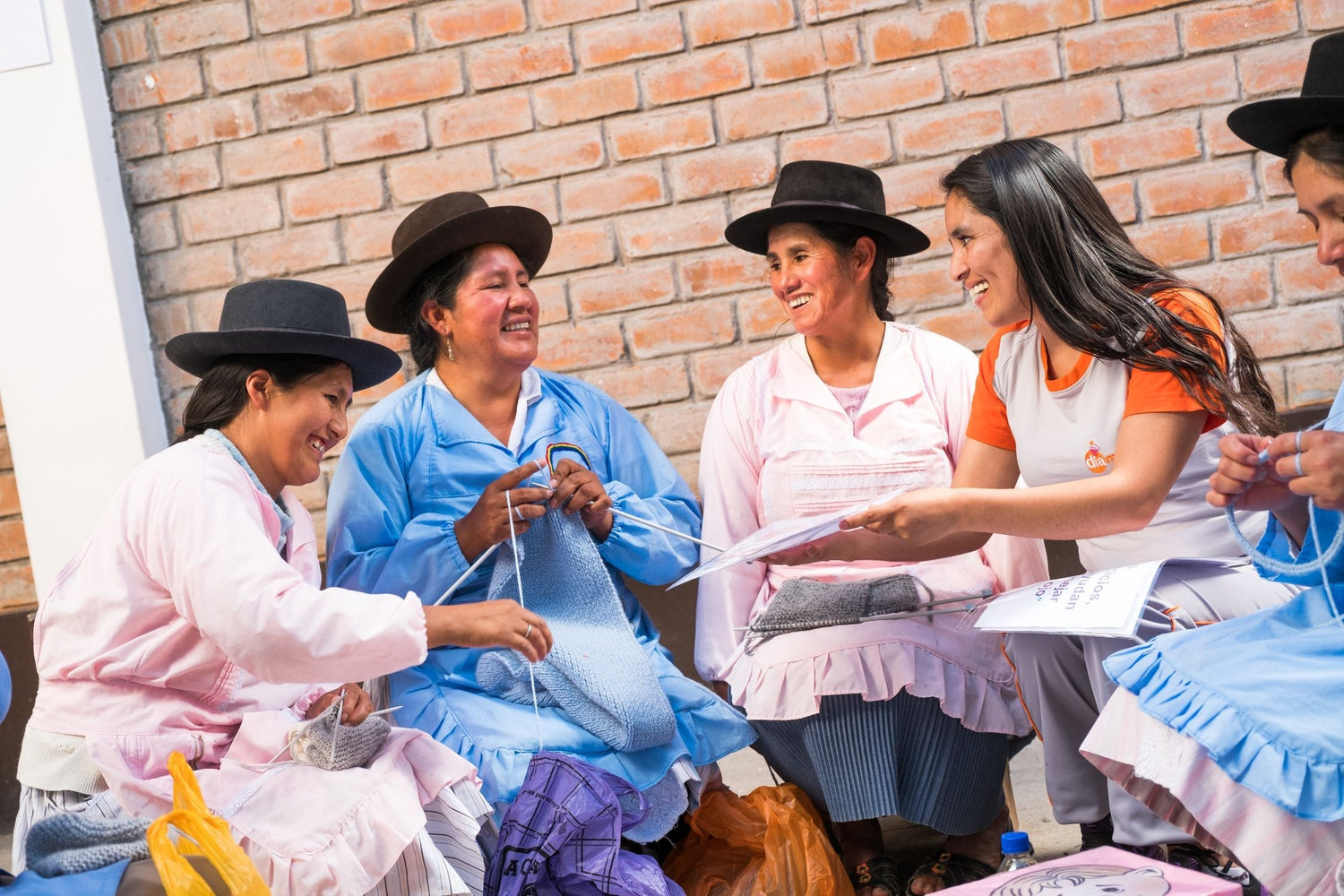This article was written in May 2020.
Hip hip hooray! Today Solid and its projects in Peru celebrate their 15th anniversary. As you may well know, Solid was born from a feeling of injustice. It just wasn’t right that certain unspeakable things were happening in the world, and Solid’s founders felt that they had to do something to help abolish inequality.
This was twenty years ago. During the first five years of its existence, Solid supported a lot of different organisations worldwide. But after those initial years, the feeling arose that they were only extinguishing little fires spreading everywhere, without much of an impact. What could they do to make a bigger difference? How could they use their resources wisely and see the fruits of their efforts? The solution: focussing on one strategically chosen area and be smart about it.
Initially, it wasn’t clear which area that should be, but what they did know is that it should be a place that was:
a) Politically stable
b) Climatologically safe, meaning no earthquakes, monsoons, etc…
c) Not too different in culture, so cultural differences wouldn’t stand in the way of creating change.
d) Room for economical growth, where the lives of people can actually be improved.
After a lot of research, considering and eliminating different options, Solid stumbled on the region of Ayacucho in Peru by chance. It met all the requirements, so full of enthusiasm Solid started working on its first project.
Let’s take this time to do a little bit of reminiscing and look back on the biggest successes of Solid Peru, but also the challenges and failures over the years. Social entrepreneurship is wonderful, but it can also be very hard and demanding, especially want you want to make a lasting change. As CEO Lyn Verelst explains: “You have to be able to talk honestly about your mistakes. Throughout the years, Solid has managed to turn lots of mistakes into victories, and have become better and better at taking a difficult situation and turning it into a win.
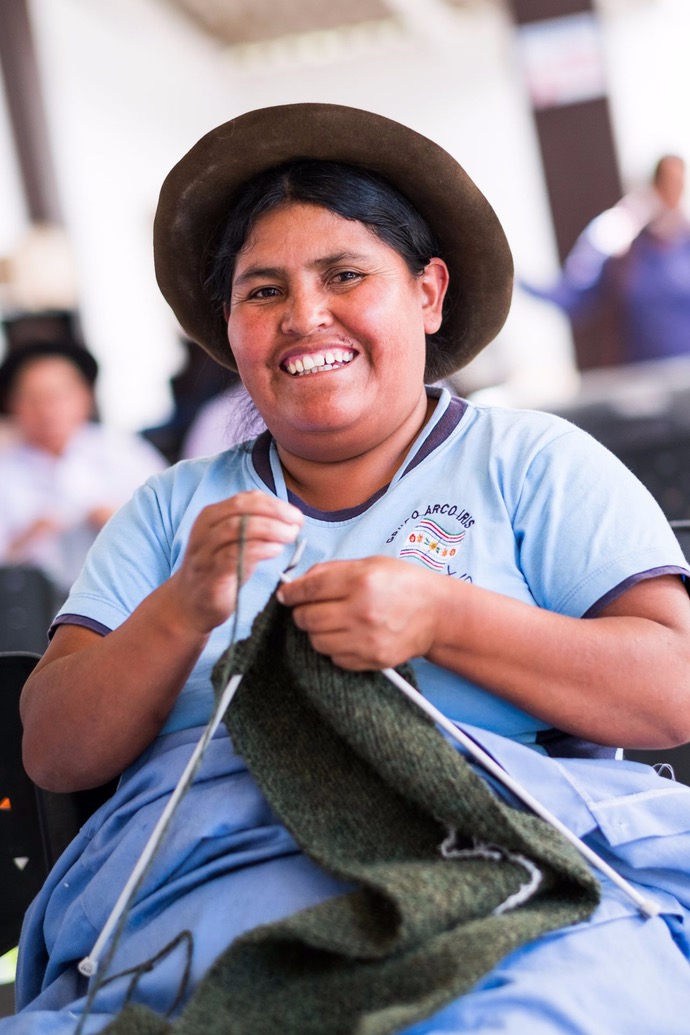
After years of living in fear because of the terror and destruction caused by the Peruvian Communist Party, also known as the Shining Path, Peru finally became politically stable again slowly since 1992. Farmers that had fled their fields for the safety of the city walls could return. Based upon the advice of two local Peruvian NGOs, Solid decided to help these farmers get back to their crops and animals, by building a whole village of new, rural houses on top of a hill. People who were living in the slums, would have a decent home to get back to. Solid and the local NGO’s worked hard and passionately, but a year after the village’s completion, they noticed something: their beautiful and newly built houses were empty and stayed empty. The locals used them as storage space for their harvest, but they still lived in the city where everything was exciting and life was full of promise. They didn’t really need or want the houses, but Solid and the NGO's had believed that they did. The big lesson? Do your research and actually learn what your target audience really needs. Don’t assume too fast that you have all the answers. Take your time to really understand the problematic situation and let the people participate in finding the solution. Consider them a partner, not a victim. In the end, it was also too simplistic to think that rural flight would be solved by simply building houses in the countryside.
LESSON 2: DON’T GIVE ANYTHING AWAY FOR FREE.
After that very first project, Solid decided not to make the same mistake twice. … Instead of working with local organisations, they decided to hire four local engineers themselves and let them investigate what would be the best possible path for Solid in Peru. The focus was mainly on agriculture, because that was – as is true for most developing countries – still the engine of the economy.
Together with the engineers, Solid decided to focus on 4 different agricultural products and help the farmers in their endeavours by setting up workshops and educational programs, such as personal tutoring. There was only one difficulty, namely convincing the local organisers NOT to hand out a free lunch during the lessons. This might sound strange, because why wouldn’t they give these poor people lunch? They were probably hungry and would be happy with a free meal. And if you didn’t hand out free food, nobody would come, because all the other organisations offered lunch if farmers came to their meetings. But no, Solid stood firm. By not adding free food to their program, only the people that actually wanted to learn something would sign up, guaranteeing a higher success rate.
The participation and results confirmed that this was the way to go, as they were very positive. Mission accomplished. “Give a man a fish and you feed him for a day, teach a man to fish and you feed him for a lifetime” is how Lyn Verelst explains it.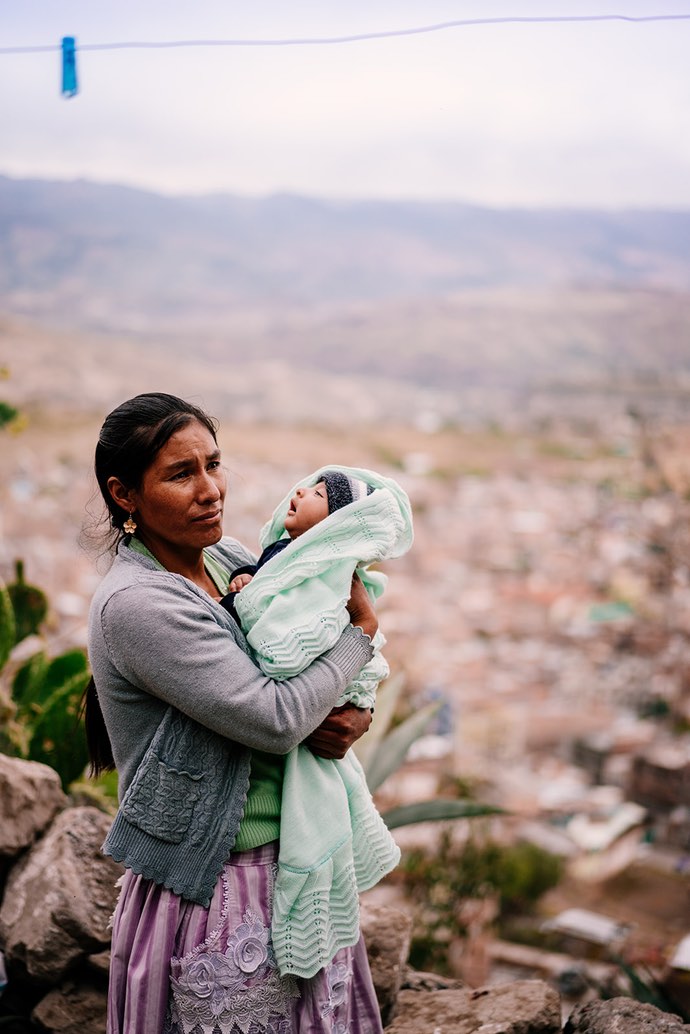
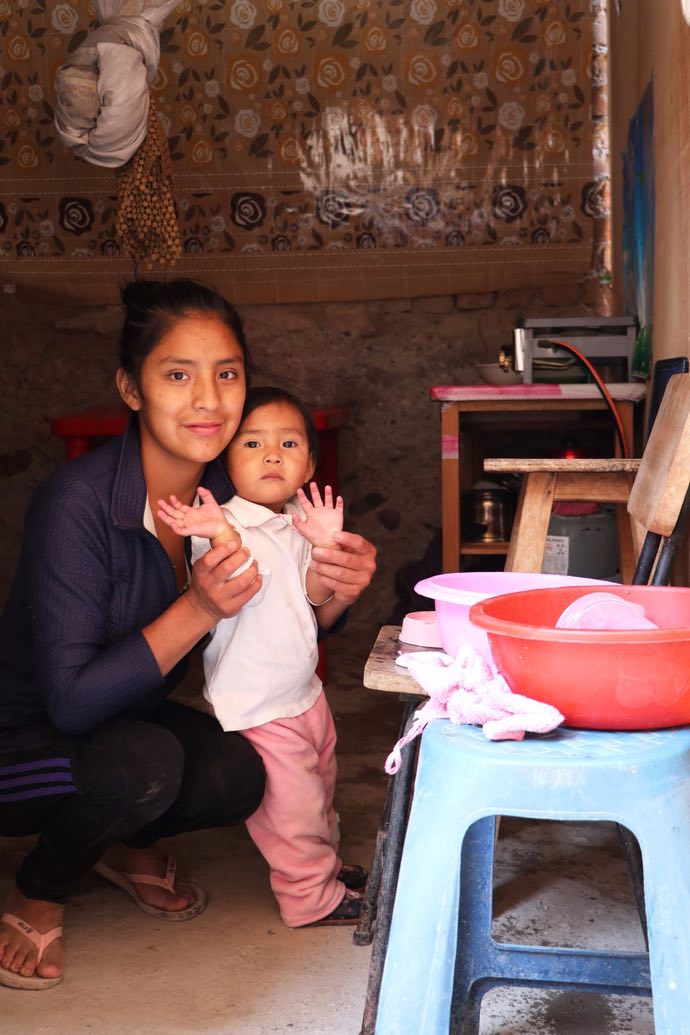
There are many ways to educate people, but Solid noticed early on that the only way to go about it is to make it very participative, personal and active. Instead of teaching facts and theories, Solid spent a lot of time preparing role plays, organising field visits, DIYs, practices, group work, etc... The overall result of this approach was very positive. It didn’t only improve the farmers’ knowledge about agriculture but also their social skills.
After one year of working around economic development, managing technical support, giving workshops and teaching the farmers new skills to develop their business, another unexpected phenomenon emerged. Everything that Solid taught the men to scale up their business, didn’t have an impact on their living circumstances. Their farms flourished, but their livings standards remained the same. The new knowledge and skills didn’t reach their wives or their families. The women – who were barely emancipated and very submissive towards their husbands - would still cook on open fires inside their homes (causing respiratory diseases), food would be stored on the floor, perishable goods weren’t kept cool and so on. Solid decided to step in and told the farmers that they would only be allowed to stay on the program, if they would also let them work with their wives. Together with the women, Solid focused on improving the living conditions, starting with simple things, such as adding a chimney in the kitchen, making a simple fridge to keep food fresh, not let meat and vegetables lie on the floor, etc… They didn’t donate the new kitchens, but explained how they could be built and installed. “It’s one of the most beautiful things in our line of work, to see the pride on these women’s faces. They paid for and built these kitchens themselves, we only helped them by explaining how. Did you know that at one point, a Swiss NGO needed to install 2000 new kitchens in ‘our’ area in Peru, and actually asked our women to demolish their kitchens so that they could put in a new one? Are you crazy, they answered, we paid for this ourselves!” Lyn proudly says. Another amazing result of working with the women, was that they learned to use their own voices. Solid attaches great value to teaching social skills and consequently, these women learned how to speak up and let themselves be heard.
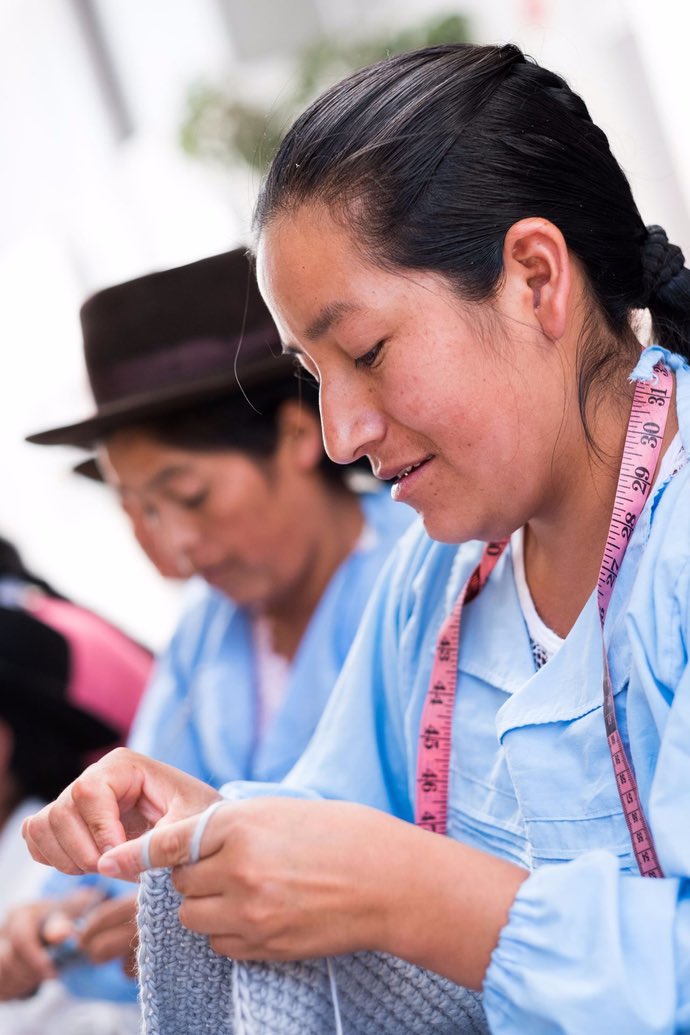
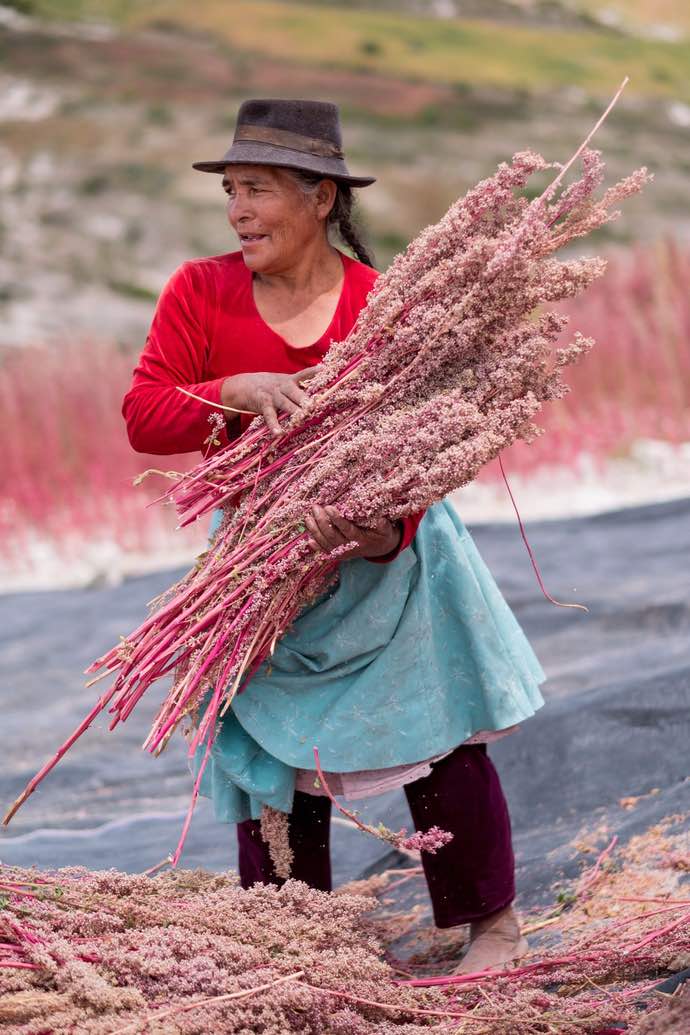
“Sh*t. We’re stuck. "Solid realized that although the farmers gained the technical and business skills they needed, they were still limited in economic growth due to the limitations of the economic context of the region. There was just no one that would pay these farmers an honest price for their product, suppliers would sell them second rate products, and they couldn’t convince any bank to finance their small businesses. This was when a new strategy was born. Solid reinvented itself and transformed from an aid organisation to a commercial business. In this way, they could bypass the oppressive circumstances the farmers had to live with. Their initiatives included a dairy stable with cheese factory, a rural microfinance institution, some agricultural shops and a quinoa trading company. Some of them failed, others have been passed over to local entrepreneurs and one of them has grown into a flourishing business. If you ever go to Colruyt, make sure to buy the Boni Bio Quinoa. Solid buys it directly from the farmers to sell it in Europe, ensuring the farmers an honest income.
A part from trying to change the economic context, Solid also realized that to create change, you have to get the youth on board. Instead of focussing on all farmers, young and old, experienced and non-experienced, they would focus on the younger generation. They can adapt quicker, learn new things faster and convince their parents of the need for change and education. If you get the young on board, you get everyone on board. The focus shifted and the youngsters became the key figures in Solid’s agricultural programs. The agricultural project wouldn’t be as big as before, but rather a small project with young students. If you could teach them to do business in a creative way using their fields, you can motivate them to make a change.
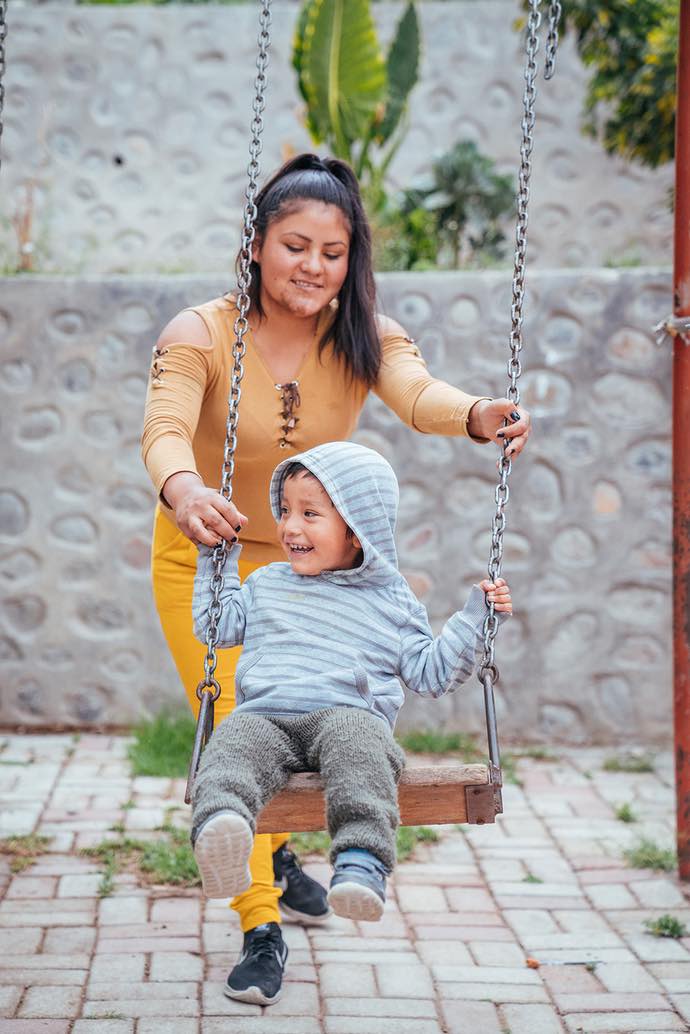
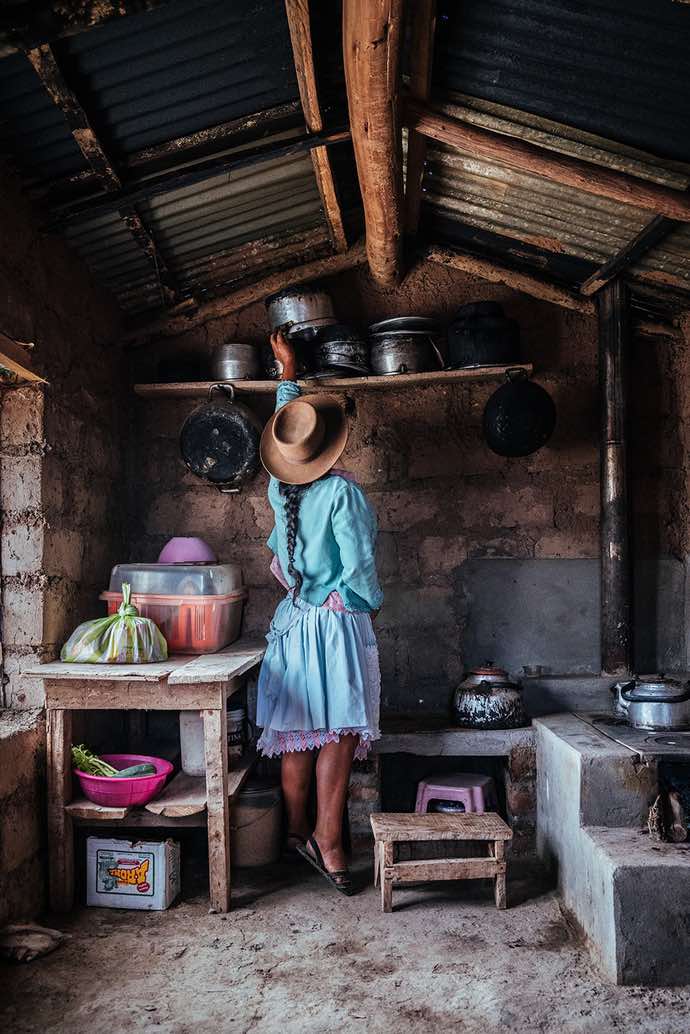
When CEO Lyn worked as a volunteer with street children in Peru, she got to know cute and curious eight-year-olds. When she returned six years later, these girls had turned into young teenagers, carrying children of their own on their hips. Feeling that something had to be done to help these girls, Lyn and Solid expanded their attention towards the city. Through different projects, Solid aims to strengthen the self-reliance and social and emotional skills of girls in risk situations. Victims of sexual or physical abuse and on isolated teenage mothers and their babies should get the help and support they need. After years of working with these girls Solid stumbled upon the same problem as with the farmers: teaching them skills is not necessarily changing their economic circumstances. So again, Solid decided to change strategy and set up a business to be able to influence these economic circumstances themselves. At first, they set up a sort of employment agency to find work for these girls, but they soon noticed that the middle class didn’t always treat the underprivileged girls fairly and would look down on them. A solution was found: Solid decided to become the employer themselves and a knitting atelier was set up. But they also discovered that it’s not easy to work with teenagers, as they are not always the most reliable employees. You can’t blame them, as they are still children, trying to adapt to new circumstances. Consequently, Solid opened up the doors of the knitting atelier to all underprivileged women with knitting expertise in the area, which led them on the road to success. Every day, about 150 women make their way to the atelier, which offers them an honest job, a fair wage, social interaction, medical care and day care for their children. “It might sound a bit feminist, but one of the things I enjoy the most, is seeing how these women get more independent when you make them stronger financially and socially. One of them even had the guts to divorce her abusive husband, something that isn’t common in the area,” Lyn says.
After proving to be a successful business model, the idea rose to implement the model in other parts of the world, to enlarge the groups of people who could benefit from it. Workshops in Kenya and India followed. “It works, but I think most of the grey hairs on my head right now aren’t caused by my children, but by trying to start up a business in India. The business model works, but it’s damn hard if you don’t understand the local context and culture. So we’re not there yet.” “But the best part? Although it’s not always easy to copy a business model somewhere else, the women are still earning a fair wage by doing honest work, and that’s what it’s all about. Giving them the opportunity to become financially independent and empower them.”
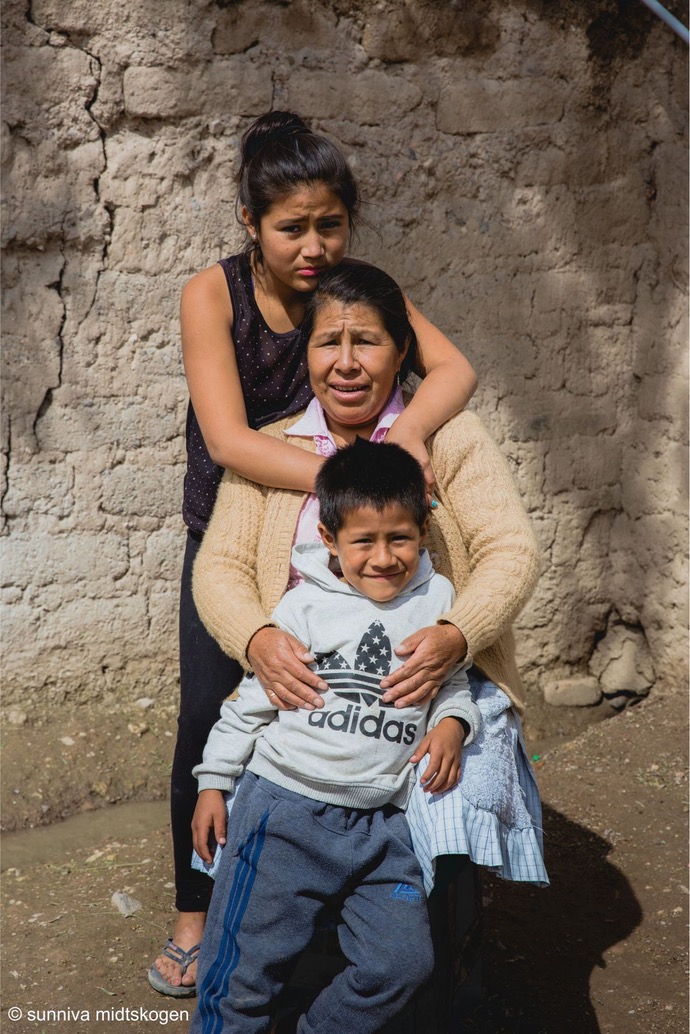
With so many years of experience and so many lessons learned, Lyn has some tips ready for entrepreneurs that want to follow their (sustainable) dreams.
1. Everything depends on hiring the right local people if you want to start a business abroad. Really invest some time in it, because your staff on site and the extent to which you can trust them, how their vision aligns to yours and their way of communicating, can make or break your company. “I was lucky to have found Roeland Donckers, the manager that worked for Solid in Peru during the first eight years. It’s thanks to him that Solid’s vision was translated correctly towards the local staff. We still talk about him and the way he laid the right foundation for Solid Peru.”, says Lyn.
2. Don’t do something if you can’t put yourself behind it completely. “I don’t believe in half measures”, Lyn explains. “You have to go for it a hundred percent, without restrictions. You have to fully believe in what you do completely and convince other people of your blind determination, otherwise it won’t work. Devote all your time and energy to your vision and work towards your goals.”
3. Work to expand your network. Although it might sound cliché, if you know the right people in the right places, it will make your work easier.




